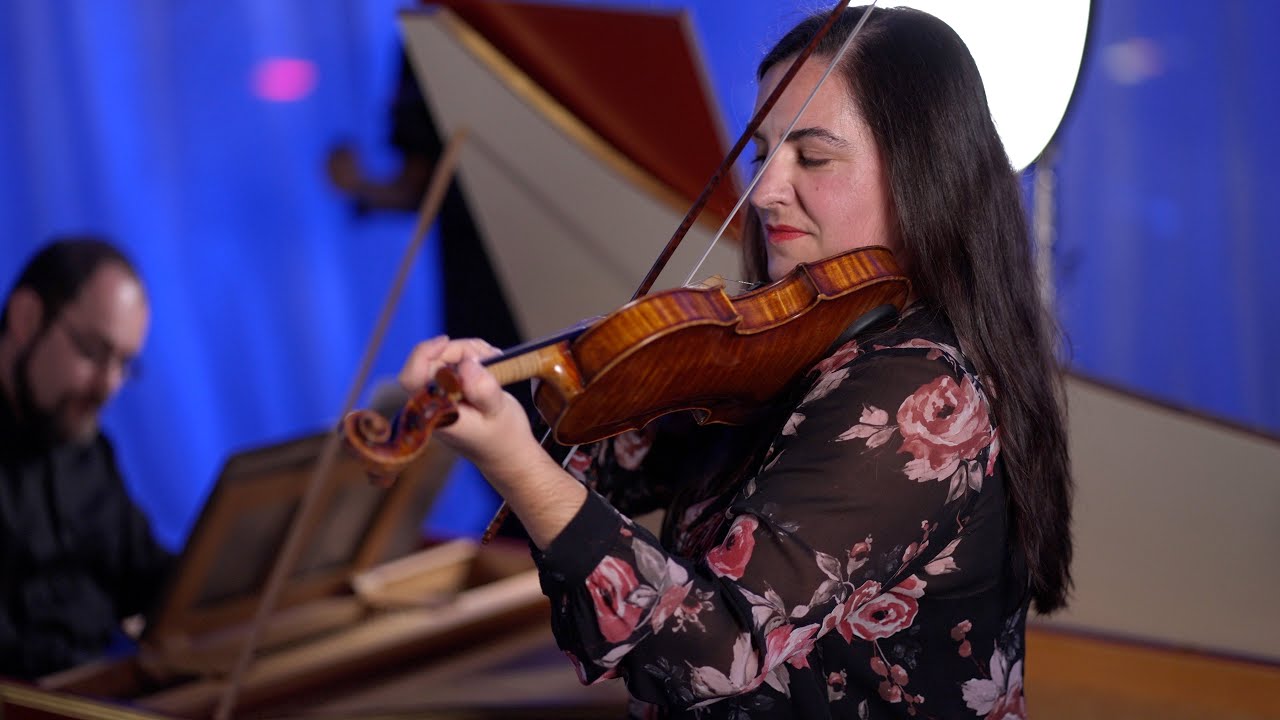How to make a happy cellist
mainWatching the Sydney Symphony Orchestra in concert at the famous Opera House a couple of weeks back, I thought the principal cellist looked a bit familiar.
‘Who’s that?’ I whispered.
‘Nathan Waks,’ said my neighbour.
‘Never!,’ I exclaimed.
The last time I was in Sydney, in 1995, Nathan Waks was head of music at the Australian Broadcasting Corporation, a man of influence and authority. I could hardly imagine a BBC executive giving up the trappings and going back to play in an orchestra where he once held powers of hire and fire – and that’s assuming anybody in the BBC would pass an audition to play any instrument in an orchestra of international quality.
But, sure enough, there was Nathan beaming away at the head of the cellos, relishing his solos and peering out into the Sunday audience in search of family and friends. He had grown a beard since we last met and, when I caught up with him backstage, he was full of the joys of his dual life, spending half his time in the orchestra and the other half as chief executive of an award-winning winery, Kilikanoon in the Clare Valley. Even as we spoke, he was negotiating a deal with the giant Fosters brewery to take over the historic Seppelt vineyard and adjoin it to his own.
He is spending less and less time these days in band, which is reluctant to lose him, but it seemed to me that Nathan Waks was doing something pretty important: he was creating a working model for the orchestral musician of the 21st century.
Let’s face it, few societies need to sustain full-time salaried players and those that do have trouble giving them job satisfaction. Letting players have a second life seems to be the ideal solution – and there are others in the SSO who pursue similar arrngements, not least the concertmaster Dene Olding who doubles as lead violin in the widely-travelled Goldner Quartet. Dene seems pretty contented, too.
Australia, a can-do country, may well have hit on the secret of orchestral happiness.





I couldn’t agree more, and it would be nice to see orchestras make an effort to select well-rounded persons, rather than people who just happened to have most successfully played their excerpts through several rounds of auditions. How great it would be to have an orchestra full of people who spend part of their time as composers, painters, engineers, entrepreneurs, etc. It happens by accident sometimes, since people talented enough to master an instrument to professional-orchestra standard may also find other outlets for their talent and ambition (in many cases to relieve the monotony that many find orchestral life to be). But how to do this without compromsing the “objectivity” that orchestras (and musicians unions) have pushed for in the audition process is a difficult question to answer.
This is heartening news indeed. Adopting a more flexible approach allows orchestra musicians to avoid burnout and stay healthy, both mentally and physically. The Seattle Symphony is giving it a go with their rotating concertmaster scheme, so perhaps North America is starting to see the light as well.
Indeed, as Norman suggests, leadng a dual life has its benefits (he says from his laptop in Tain L’Hermitage, waiting for the grapes to ripen so Kilikanoon can make its first Kilikanoon Hermitage…)
I am actually just following my own advice. My orchestral colleagues all know that, when I was the ABC Director of Music, I encouraged the concept of the orchestra as a community of musicians, where the traditional symphonic repertoire is just part of a fulfilling career. Not that it was my idea. People like Norman Lebrecht and Ernest Fleischmann have championed these ideas for a very long time.
In googling the words I came across this article I wrote a few years ago on the subject for anyone who is interested. http://www.nactmus.org.au/papers01/waks.html
For my part I can genuinely say that pursuing a second career has made my first one much more rewarding- not to mention the joy our wine brings to some of my colleagues!
Nathan Waks
How nice to read–I remember you, Nathan, from the BBC. Glad to see you are playing the cello and enjoying the fine tuning of wine as well! Hope to find my way to your neck of the globe sometime–and glad Norman brought us up to date on your whereabouts.
I am a professional musician who has worked very very hard to get a well rounded post-secondary education without sacrificing an in-depth musical education. (Whether or not I’ve succeeded is, of course, up for debate). Obviously, I heartily agree with the idea of a well-rounded musician. I believe very strongly that music should not be made into a science to be mastered technically through hours of rote practice at the expense of the life experiences which help one to add emotional depth and character to their music making. In the pursuit of technical perfection, many American orchestras have gone a bit too far down that road. However, assuming that professional orchestra players should live a double life to some extent forces them to do so. If professional orchestras only pay a part time salary (which is sometimes true even when the work is full time), then players who may have spent their entire educational lives being very narrowly focused (as most who express interest in an orchestra career are forced to do) will be in a tight spot. In America today, the average symphony player usually has a second career as a chamber musician or private teacher, but would certainly have trouble getting work in any other field. It seems that we can’t start at the top by reforming orchestras, we need to start on the ground level and rethink musical education for people on the professional performer track. It is a difficult line to walk between a well rounded education and the pursuit of artistic excellence and technical mastery. But, I think we would see a huge change in the world of symphonic music if more educational institutions at least attempted to negotiate that relationship, rather than asking purely for focus.
Waks and Olding are, respectively, the principal cello and concertmaster. Are they covered by the same contracts covering the other musicians in the SSO? Are all the musicians able to negotiate time off to tend to another career or artistic outlet?
There’s an enormous, day-glo red line separating “letting” musicians have a second career to pursue at their leisure, and forcing them to cobble together an income by paying them a part-time salary. What’s the situation in the Sydney Symphony Orchestra? It’s important to communicate it to readers before trumpeting the orchestra as a trailblazing model.
I’m sorry I wasn’t able to come and hear you when you spoke at the National Academy of Music in Melbourne (Friday at 3pm isn’t a very convenient time). Any chance you talk may be posted or available somewhere?
NL: The parallel lecture that I gave in Sydney was broadcast in full on the ABC this Sunday and can be found via audio link somewhere on their site.
The transcribed text is here
http://www.abc.net.au/news/opinion/documents/files/20070827_lebrecht.doc
Playing a musical instrument to professional orchestral standard is a highly skilled job and requires constant practising, even when someone has been at it for decades. If musicians don’t practise, the audience can tell right away. If a whole orchestra doesn’t practise, because its members are busy running wineries, the standards will drop. If the performances are bad, nobody will want to come to the concerts. Sorry, but much as I’d love my husband to run a winery in what spare time he has from his violin, which isn’t much, there’s no way round this.
NL: Jessica – I’m not suggesting Tom should take up gardening with a view to becoming the next Proms presenter. Those who want and need to play fulltime must be given the opportunity to do so. But in my fairly long experience, and I’m sure in yours, one has noticed that orchestras are filled with lots of unhappy and unfulfilled bunnies who would have led richer and happier lives with an extra bow, as it were, to their string. No?
Being a professional musician myself, by coincidence I have landed also a side-line activity (job) next to conducting.
Admittedly, it is perhaps debatable – like Jaemi Loeb states earlier, but I do find this non-musicians activity outside the Concert Hall as a valuable contribution to being a musician (and here I am referring to the musical aspects of being a performing musician).
One could argue perhaps, that constant practicing is necessary for performing artists, but it has indeed a downside. Not just musicians, who are getting perhaps technically acrobats, however, not having sufficient musicality to perform music as it should be (intellect, cultural feeling…). This I do witness from time to time.
Maybe we should question ourselves, whether professionals who practice 8 hours a day to excel, perhaps do not have enough appropriate talent than those who run this wine-business and yet manage to perform well…. Music is not only about virtuoso-acrobatics. Modern audiences seem to have forgotten that (and professionals follow this demand…. to what price?)
I feel at ease with my “double-life” and can relate on modern professional music and its regrettable deviations (like flashing video-clips, light effects during concerts, performing Liszt at F1-speed….).
People (and professional musicians) are not machines or robots. There;s more than clean techniques and speed.
There are many orchestras that do NOT provide a livable wage. Most of our string players have second jobs in order to continue playing a 38week season with 125 service contracts.Management and conductors seem unable to digest this info enough to plan a season that takes into account that they need to schedule rehearsals and concerts with the fact that all but 28 CORE players need to have the extra income.
NL comments: Could you tell us which orchestra this is? See also the report above from Slovakia.